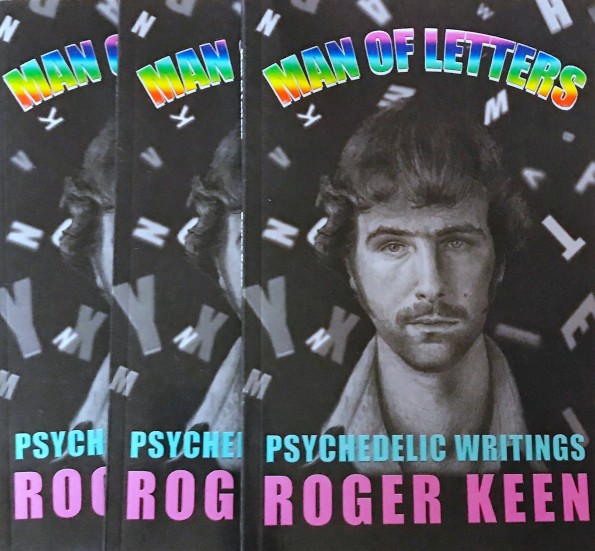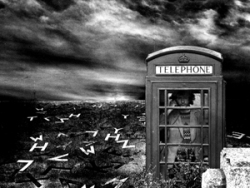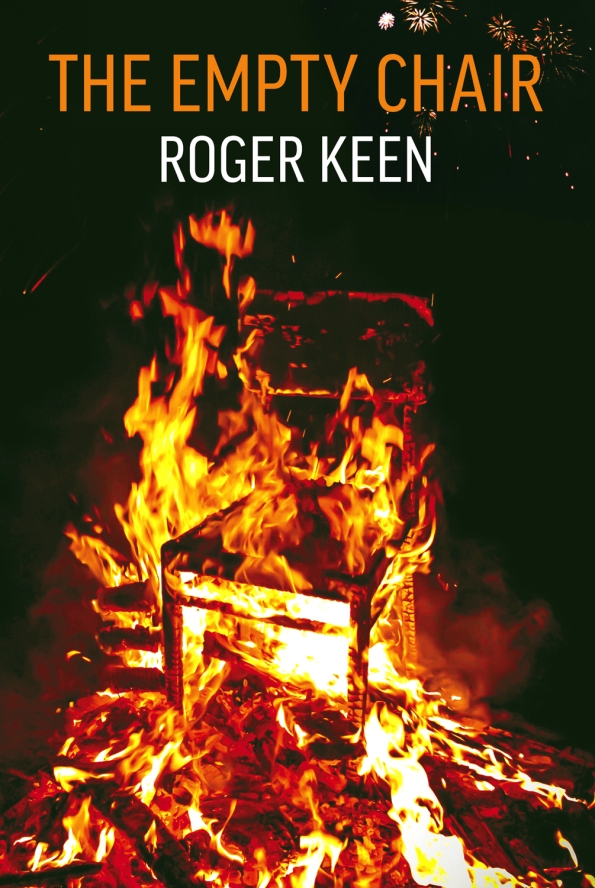Archive
LSD, Smiles and the Madness of Operation Julie
The story of ‘Operation Julie and the Microdot Gang’ has become part of hippy folklore, a ‘cops ’n’ outlaws’ clash to rival the Sheriff of Nottingham and Robin Hood’s Merry Men, or Joe Lefors and Butch Cassidy’s Wild Bunch. Many books have been written about it from the perspective of both sides of the law – from Inspector Dick Lee’s account to Leaf Fielding’s.
Now In Search of Smiles, a new biography of Alston Hughes, a key figure in the Microdot Gang (written by LSD historian Andy Roberts), has been published by Psychedelic Press. Here is my extended feature on the book and the Operation Julie phenomenon:
The term ‘Operation Julie’ is indelibly branded on the minds of anyone who knows anything about British counterculture in the 1970s. One of the biggest anti-drugs initiatives ever, it was tabloid heaven, with the bust itself, in March 1977, becoming the top news story of the day, its ramifications going far and deep.
In the public mind, drug busts were directed against familiar hard drugs such as heroin and cocaine, and increasingly cannabis, the smuggling and distribution of which had increased exponentially over the past decade. What made Operation Julie newsworthy was the target drug, LSD, at the time an exotic and much-feared substance; known to have inspired the Beatles and Pink Floyd, but also to have driven people crazy.
Therefore, the dynamics of Operation Julie were qualitatively different. The story wasn’t about a straightforward ‘good cops versus evil pushers in it for the money’, it was about ideology and the politics of personal experience, about LSD’s effect on society, and controlling the impressionable. LSD proponents, people who’d experienced the drug in significant doses, and who had undergone its transcendental, transformative effects, saw it as a catalyst to change the world for the better, a shortcut to ‘the meaning of life’, which, if it were to spread exponentially throughout the populace, would effect desirable societal change, one brain at a time…
Read more on Psychedelic Press Substack
Man of Letters: Psychedelic Writings
Out Now: A collection of fourteen psychedelic-themed essays, several of which have appeared in Psychedelic Press, The Oak Tree Review and Reality Sandwich, covering countercultural history, avant-garde and psychedelic cinema, and the psychology of altered states. They touch on figures such as Thomas DeQuincey, Charles Baudelaire and William Burroughs; and in the field of cinema, directors including Ken Russell, Roger Corman, David Cronenberg, Terry Gilliam and Ben Wheatley are explored.
The essays revisit the ‘Alphabet Wood’ hallucination of the Plym Woods in 1975, the mushroom-inspired ‘Cult of the Novel’ messianic quest to turn the world on to ‘reality fiction’, and contain updates to the ‘trippy movie’ coverage, including 2022 films Avatar: The Way of Water and Doctor Strange in the Multiverse of Madness.
The alphabetic cover comes with its own story, dating back to my ‘Strange Days’ of the mid-1970s in Bournemouth, and stretching into the realms of contemporary horror and fantasy cover design. Read the full story on Medium: A Tale of Two Covers
Further details regarding Man of Letters, and purchase links can be found here: DV Publishing
Will Self and the Drug Memoir
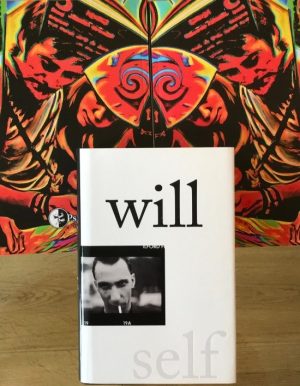 My article “Will Self and the Drug Memoir” is now available in the new Psychedelic Press journal XXXVII, and an extract is also out on their Substack. The piece focuses on Will Self’s memoir Will – which details his drug use from age seventeen to twenty-five, taking in his years as an Oxford student and concluding with his rehab in Weston-super-Mare – setting this against a brief history of the drug memoir genre and featuring the key works of Thomas De Quincey, Charles Baudelaire, Fitz Hugh Ludlow, Aleister Crowley, William Burroughs and others.
My article “Will Self and the Drug Memoir” is now available in the new Psychedelic Press journal XXXVII, and an extract is also out on their Substack. The piece focuses on Will Self’s memoir Will – which details his drug use from age seventeen to twenty-five, taking in his years as an Oxford student and concluding with his rehab in Weston-super-Mare – setting this against a brief history of the drug memoir genre and featuring the key works of Thomas De Quincey, Charles Baudelaire, Fitz Hugh Ludlow, Aleister Crowley, William Burroughs and others.
Though Will Self’s memoir mainly concentrates on heroin use and addiction, there are sections on other drugs, including LSD, and my article highlights this and also Self’s psychedelic philosophies.
“In his recent drug memoir, simply entitled Will, Will Self writes about himself in the third person, presumably to gain an extra measure of objectivity in what is necessarily a significant act of self-examination. Early on he says that drugs are neither a hobby nor a genre, but drug memoirs can certainly be considered as such, or at least a category—Amazon lists them under ‘Alcohol & Drug Abuse Biographies’, which includes the usual raft of celebrity confessional tomes, rubbing shoulders with the classics, such as Aldous Huxley’s The Doors of Perception: And Heaven and Hell, which, 68 years after its first publication, still sells well enough to make the top 100.”
Read more on Psychedelic Press Substack
Recent Psychedelic Writings
 The latest Psychedelic Press Journal, Issue XXIX, contains an account of ‘My First Trip’ – another in the long-running series initiated by editor Nikki Wyrd.
The latest Psychedelic Press Journal, Issue XXIX, contains an account of ‘My First Trip’ – another in the long-running series initiated by editor Nikki Wyrd.
For me this is the latest of many iterations in writing about this formative experience, which took place in December 1975, over forty-four years ago now. The longest version, of course, is the seventeen-thousand-word account at the start of my memoir, The Mad Artist, but here was an opportunity to boil it down and make it more concise for magazine purposes.
Processing the experience once again, I was reminded of the hair-raising aspects of the trip, which was both extremely strong – due to the LSD itself: Operation Julie Vintage in double dose – and was rendered more hazardous still by the poor choice of setting – country woods and roadways, involving passing cars, on a cold unforgiving winter’s night. In a way it’s a cautionary tale about how not to conduct a first trip!
 Nikki Wyrd sets these factors in context in her Editorial and comes up with the delightful phrase ‘retroactive enchantment’, in order to describe how a subject’s view of an event can mature and transform over time as the various factors are processed and its true value comes to the fore. Nikki has said she sees these ‘First Trips’ as watersheds in peoples’ lives, a significant rite of passage, and she hopes the collection will provide a resource for historians of the future, with a range of times and places featured. A worthy project indeed!
Nikki Wyrd sets these factors in context in her Editorial and comes up with the delightful phrase ‘retroactive enchantment’, in order to describe how a subject’s view of an event can mature and transform over time as the various factors are processed and its true value comes to the fore. Nikki has said she sees these ‘First Trips’ as watersheds in peoples’ lives, a significant rite of passage, and she hopes the collection will provide a resource for historians of the future, with a range of times and places featured. A worthy project indeed!
Also the excellent cover of Issue XXIX, designed by Tom Andrews of Done London, was inspired by my ‘First Trip’ account, with the woodland setting featuring awesomely in the mandala-based imagery.
Other pieces include a wry trip poem by Kerry Rowberry, written in Birmingham dialect, which evokes Irvine Welsh’s use of dialect in Trainspotting; there’s a very vivid account of an epoch-making DMT trip from Anthony Pellegrino, with great existential resonance like my own; Mike Fioroto provides a psychedelic short story, and there are articles from Daniel Kelley, Mark Juhan and a review of Andy Roberts’ Divine Rascal from Rob Dickins. Another superb knowledge-packed issue!
More information: Psychedelic Press
SPECIAL OFFER FROM VALENTINE’S DAY FOR ONE WEEK: KINDLE EDITION OF THE MAD ARTIST AT HALF PRICE ON AMAZON.COM & AMAZON.CO.UK – LINKS HERE Read more…
The Beat Writers and the Psychedelic Movement

Allen Ginsberg & William Burroughs in later years.
This article was adapted from my talk at Breaking Convention 2015, held in London at Greenwich University. It has now been published by the excellent Oak Tree Review, which investigates the many branches of psychedelic culture throughout history, specialising in its manifestations in art and literature.
In their activities and writings in the late 1940s and ’50s the Beat writers – principally Jack Kerouac, William Burroughs and Allen Ginsberg – prefigured and influenced the Psychedelic Movement, which came into flowering a generation later. When those epoch-making cultural changes got underway in the ’60s, the Beats were naturally looked upon as mentor figures and elder statesmen, and Timothy Leary, who was of the same age group as them, was happy to recruit and induct them into the cause – through his Harvard program. This produced some unexpected and volatile results – Tim Leary got more than he bargained for – and the end product as regards the three major Beat writers was one spectacular success, one mixed case, and one spectacular failure.
It all started in New York in 1943, within the Columbia university scene where the Beats first hooked up. At the time Jack Kerouac was in his early twenties, and already saw himself as a writer. Bill Burroughs was older, in his late twenties, and was known as a raconteur and intellectual, and became a mentor figure to the group. Allen Ginsberg was the kid, still a teenager, and just enrolled at Columbia. There were other key people in the group, such as Lucien Carr, another student, and everybody became fictionalised in Kerouac’s novels – most notably On the Road.
At around this same time Burroughs first tried morphine and became an addict, so the events of his first novel Junkie run roughly concurrently to On the Road. In both books, which are strongly autobiographical, there are many references to recreational drug use, and they open a marvellous window onto pre-psychedelic bohemian life – exactly the kind of scene which would develop eventually into the hippie scene.
Read more on: The Oak Tree Review
War Stories & Cosmic Flights: An Interview with Andy Roberts

Andy Roberts at Breaking Convention
Originally published in Psypress Vol XVIII, my in-depth interview with LSD historian Andy Roberts covers his new book, Acid Drops, and much more. We compare notes on the mind-bending properties of Operation Julie acid and generally muse about tripping in the 1970s, with Andy giving examples of the various weird acid synchronicities he’s experienced. Now online in this abridged version.
Andy Roberts is well known in the psychedelic community as the author of Albion Dreaming: A popular history of LSD in Britain, which was published in 2008. He is also a UFO folklore researcher, a prolific journalist on matters psychedelic and Fortean, and an active presence on the event and convention circuits, giving lively lectures and contributing robustly and colourfully to discussion sessions.
I first met Andy on Facebook in 2010, when he provided a lot of kind support and valuable feedback on my then newly-published memoir, The Mad Artist, concerning my psychedelic adventures in the 1970s. As Andy is much the same age as me, we found we had many congruent historical experiences—acid war stories, one might say—we’ve continued to exchange lively chat on such matters, and we eventually met in the flesh last year. For a long time I’ve wanted to delve a bit deeper into his head and ask a few possibly difficult questions. And now with the publication of his new collection of writings, Acid Drops, I’ve finally got my chance.
Roger Keen: Andy, congratulations on publishing Acid Drops. It contains a miscellany of pieces, some already familiar to me and some not so. When you composed them, did you have the idea that they may one day come to together to form a whole, or did that notion take place more spontaneously? And how did you decide to arrange them in order to create a total effect within Acid Drops?
Andy Roberts: Thanks! There was never any real notion they may coalesce into a themed collection until sometime in 2015, when Psychedelic Press supremo Robert Dickins suggested the idea and it grew from there. At the time I was deep in research for the Michael Hollingshead biography I am still writing (of which more later) and, like any good writer, looking for diversionary activity 
Even though I’d had an abiding interest in psychedelics since 1971, until I wrote Albion Dreaming I’d actually written very little else on the subject; a very early short piece after my second trip, a few articles for Fortean Times relating psychedelics to flying saucer belief, and a piece about the Grateful Dead’s acid-inspired telepathy experiments, and that was about it. But since the publication of Albion Dreaming I’ve written quite a few pieces, some of which have been published in Psychedelic Press, some in more obscure journals, and I had a few pieces kicking about in note form which I breathed new life into. Being able to publish all these bits and pieces meant that others have the chance to see at least the tip of the ‘research iceberg’ that is my archive!
Some of the real treasure came in the form of interviews I had carried out for Albion Dreaming or for the planned Hollingshead book, because usually only a tiny percentage of an interview actually makes it to the final edit of a book, and the chance to print some of these interviews in full was too good to miss. I also generated a few pieces specifically for Acid Drops, such as the interview with psychedelic alchemist Casey Hardison, which I think is a corker! I was also very pleased to be able to include a long form poem written by my good friend Graeme, about an experience we shared on a psychedelic quest for a mysterious and now long gone sculpture deep in the heart of the Lake District in Grizedale Forest.
I also have several pieces that didn’t make or weren’t submitted for the final edit, plus a host of interviews which have yet to be transcribed, and lots of other ideas that might make it into a second volume if Acid Drops sells well enough.
The final order of pieces in the book was entirely Rob’s and it makes perfect sense, being a mixture of the chronological and the themed.
Read more on: PsypressUK
Review: Neuro-Apocalypse by Reverend Danny Nemu
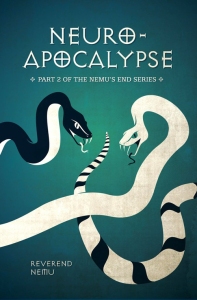 The second volume in the Nemu’s End series finds the self-styled Reverend Danny Nemu looking inwards to explore the personal apocalypse, where the veils of regular cognition are rent asunder and an unbounded world of revelation manifests beyond. He focuses on how the constrictions and convolutions of language work to dilute the divine, drawing its sting and rendering it into the conventions of whatever zeitgeist that currently obtains. This issue is intensified by translation – for example, any number of multiple meanings can arise in the text of the Bible when it is filtered through Aramaic, Hebrew, Greek, Latin and English. Overcoming the tyranny of the Word, be it written, spoken or thought, is what Neuro-Apocalypse is about, and Danny Nemu explores the many avenues through which this may take place.
The second volume in the Nemu’s End series finds the self-styled Reverend Danny Nemu looking inwards to explore the personal apocalypse, where the veils of regular cognition are rent asunder and an unbounded world of revelation manifests beyond. He focuses on how the constrictions and convolutions of language work to dilute the divine, drawing its sting and rendering it into the conventions of whatever zeitgeist that currently obtains. This issue is intensified by translation – for example, any number of multiple meanings can arise in the text of the Bible when it is filtered through Aramaic, Hebrew, Greek, Latin and English. Overcoming the tyranny of the Word, be it written, spoken or thought, is what Neuro-Apocalypse is about, and Danny Nemu explores the many avenues through which this may take place.
Drawing on a rich history of personal experience, Danny tells of arguing with Jehovah’s Witnesses in Kyoto, of taking his perceptive system ‘off road’ with large doses of speed, and imbibing ayahuasca, firstly in Japan and later in the Brazilian Amazon. From an elevated perspective, he sees the ‘problem’ of language and the pictures it creates, even as he’s using it: ‘The nervous system finds what it expects to find […] We call false interpretations of the visual scene “hallucinations”, even though everything we see is an interpretation. The world perceived is the visual equivalent of a theory as yet unfalsified.’ He says that our cognitive structures are both climbing frames and cages, but their bars can be bent or reconfigured.
When it comes to geniuses such as Newton, Tesla and Wittgenstein, Danny points out that their oddities and obsessive natures contributed in no small part to their intellectual achievements and breakthroughs; and similarly with autism, the difficulty with abstract thinking can be counterbalanced by the savant’s extraordinary powers of memory and recall. Continuing this thread, he notes that some of the symptoms of an epileptic fit resemble those of a religious vision, including terror and elation, premonition and encounters with demonic, angelic or ancestral entities. And the syndrome of ‘hearing voices’ isn’t necessarily all bad, when looked at from beyond the perspectives of western psychiatry. The point here is that there are many ways for the veil to be lifted.
Entering the realm of the role of psychoactive substances in the history of religion, Danny crosses the more familiar ground of Soma and the Eleusinian Mysteries, and then moves onto drugs in the Bible, re-evaluating the propensities of frankincense and myrrh. The former is a tranquilliser, an antidepressant and anxiety-reliever, whilst the latter shares those properties and is also an aphrodisiac. They were used with wine and other ‘head spices’ to create both healing and psychedelic effects, and when looked upon in that light, many passages in the Bible take on multiple new shades of meaning. For example, in the burning bush story, the bush burned with fire but was not consumed, which perhaps is ‘a good metaphor for the colourful geometric patterns that blaze around the objects of one’s attention in psychedelic states.’
As with Newton, Tesla and Wittgenstein, Danny’s new work has an impressive, obsessive monumentalism – the notes alone take up fifty pages. And the Reverend himself comes over as an Old Testament prophet reborn as a psychedelic dub poet or DJ, sampling and splicing the ancient and modern in his own signature style. Blending Bible studies with history, linguistics, philosophy, psychology, pharmacology and anthropology, Neuro-Apocalypse is a heady eclectic reading experience, a synapse-stretching brain workout that puts a new spin on apocalypses within and without. Highly recommended for anyone interested in the cutting edge of psychedelic philosophy.
Buy a copy here: Psychedelic Press Shop
War Stories and Cosmic Flights
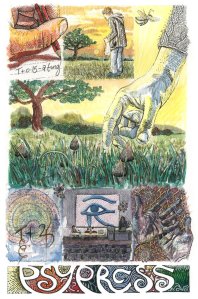 The latest Psypress Journal, 2016 Volume XVIII, features ‘War Stories and Cosmic Flights’, my in-depth interview with LSD historian Andy Roberts. We compare notes on the mind-bending properties of Operation Julie acid and generally muse about tripping in the 1970s, with Andy giving examples of the various weird acid synchronicities he’s experienced.
The latest Psypress Journal, 2016 Volume XVIII, features ‘War Stories and Cosmic Flights’, my in-depth interview with LSD historian Andy Roberts. We compare notes on the mind-bending properties of Operation Julie acid and generally muse about tripping in the 1970s, with Andy giving examples of the various weird acid synchronicities he’s experienced.
Andy goes on to talk about his new book Acid Drops, a collection of essays and interviews about all things psychedelic. As well as exploring the wacky, scary and wonderful in first-hand trip accounts, he also debunks long-standing urban myths about acid, such as Francis Crick being aided by LSD in discovering the DNA double helix; and also the classic ‘Reservoir Drugs’ scare story, about LSD in the water supply potentially freaking out entire towns and cities.
His collection includes interviews with Liz Elliot, Casey Hardison and Ramsay Campbell, and he also features a piece of his own fiction, all of which he discusses, along with his upcoming biography of Michael Hollingshead. Finally Andy gives his thoughts about the ‘war on drugs’, which makes him ‘incandescent with rage’, and also the current psychedelic renaissance, including the effect of the internet and social media on acid culture.
Psypress 2016 Volume XVIII also features Dr Andy Letcher’s ‘Mad Thoughs on Mushrooms’, a Foucauldian discourse on the effects of mushrooms within various classifications – some philosophical brain food of the highest order here! Christopher G. Ewing gives a marvellous account of the healing properties of psychedelics in dealing with conditions such as PTSD and addiction, and Vladimir Stephan delves into the area of sensory deprivation and altered states, examining the various techniques. For an enlightening read, get your copy now: Psypress 2016 Volume XVIII
The Beat Writers and the Psychedelic Movement
My Breaking Convention talk from July 2015 is now up on YouTube.
In their writings and lifestyle experiments, the Beat writers Kerouac, Burroughs and Ginsberg were very much the precursors of the psychedelic movement – in particular with regard to their employment of drugs for recreational and psychonautic purposes. They were pioneering users of ayahuasca, mescaline, psilocybin and LSD; and when Timothy Leary began his Harvard work he naturally tried to induct the three as elder statesmen figures. The results were somewhat volatile and unexpected, with one resounding success, another a mix of good and bad, and another a resounding failure. Nevertheless the Beats remain highly influential figures and today’s psychedelic culture would not be the same without them.
Review: To Fathom Hell or Soar Angelic by Ben Sessa
 Author Ben Sessa is a psychiatrist, and his novel starts with a psychiatrist character, Dr Robert Austell, having a violent fantasy where he cuts a patient’s throat with a scalpel and nonchalantly watches her bleed to death. The reader can be forgiven for momentarily wandering just how autobiographical the work is, and indeed whether such things are the norm within the psychiatric profession! But of course this slasher opening is a piece of black comedy in order to set up the jaded, disillusioned Austell as someone who – like the majority of the working population – is bored with his job and wishes he could be doing something more enlightening.
Author Ben Sessa is a psychiatrist, and his novel starts with a psychiatrist character, Dr Robert Austell, having a violent fantasy where he cuts a patient’s throat with a scalpel and nonchalantly watches her bleed to death. The reader can be forgiven for momentarily wandering just how autobiographical the work is, and indeed whether such things are the norm within the psychiatric profession! But of course this slasher opening is a piece of black comedy in order to set up the jaded, disillusioned Austell as someone who – like the majority of the working population – is bored with his job and wishes he could be doing something more enlightening.
Austell’s situation is contrasted with that of another British psychiatrist, Dr Joseph Langley, who is living the New Age life in California, taking in the ocean vibes whilst high on LSD, his ego and self frittering away ‘into nothing but a river of effervescent specks of infinite light.’ Steeped in the alternative society since embryohood, Langley has brought those values to bear on his psychiatric work, and is now a renowned leader in the field of psychedelic therapy – using LSD, psilocybin, ketamine and MDMA to effect healing on the emotionally damaged.
The two psychiatrists come together when Austell happens to attend a psychedelic conference in California, not really aware of what he’s getting into. Here, the novel’s comic undertone gets a boost as a number of New Age weirdos are seen through Austell’s eyes. They include one speaker, Mountain Spirit, who sports a grey ponytail and talks of:
‘…The double helix gliss-openings percolating into our grid cubes transmit to us from mutated cadence entities. Using a synesthetic code derived from two-dimensional forms we exist simultaneously in identical universes. We jump in real time using fractal wave structures between this, our everyday world and the Other – where nothingness is connected with ourselves, the spirits and our environment.’
Austell thinks he’s a suitable case for sectioning, but as the conference progressives he becomes less judgemental of the quirks of psychedelic medicine, and by the time Joseph Langley speaks, Austell is more receptive. The two psychiatrists meet in the bar afterwards and begin a beautiful friendship, each seeing the other as their own flipside or complementary element in a yin/yang dynamic – Austell the down-to-earth jobbing physician with regular patient contact, and Langley the head-in-the-clouds world-changer who needs to get more pragmatic to achieve results.
They form a partnership, which leads them to establish a psychedelic medicine centre, down on a muddy farm in Somerset. Here, a selection of Austell’s patients – hopeless cases as far as conventional psychiatry is concerned – have their lives turned around and are completely rebased as a result of targeted treatment with LSD, psilocybin, ketamine and MDMA. Eventually a thriving commune develops on the farm, and word of the miracles being worked spreads far and wide.
Psychedelic medicine is Ben Sessa’s own pet project within his psychiatric work, and in To Fathom Hell or Soar Angelic, he is actualising a dream of it becoming generally accepted and even taking over the world. In reality it could never be as simple as portrayed, and no one knows this better than Dr Sessa himself, who has written and talked extensively about the obstacles, misunderstandings and general resistance there is toward such a venture.
But within sections of the psychiatric world itself, there is interest and sympathy for the clinical use of psychedelics, and this is something he wants to nurture. A novel, then, concerning the subject – with a far greater latitude of creative freedom than a non-fiction work provides – would seem like an ideal venture and a way to win over more support and attention regarding the cause.
But still, it has to be entertaining and page-turning to succeed, and indeed it does. Dr Sessa displays a great talent for creative writing and never ‘lectures’ his readers in a dull or pedantic way. Instead he uses irony and satire in liberal doses to take amusing sideswipes at conventional psychiatry – in particular its reliance on fat-profit pharmaceuticals to achieve any end. Whether it be benzodiazepines, SSRIs, tricyclics, anti-convulsants or antipsychotics, their efficacy is limited and patients really need something more to fill the black holes inside themselves.
Ben Sessa is also good at bringing characters alive, from spaced-out hippies to plodding psychiatric journeymen to burnt out headcases. His novel moves along rip-roaringly and leaves a constant smile on the face. Perhaps the story does involve a lot of wishful thinking, but that’s what psychedelic transformation is all about – dreaming wonderful dreams, attempting to make the impossible come true, and whatever the outcome it matters no great deal, for as the Buddhists say: the passing is nirvana.
To purchase a copy of the novel, please visit the Psypress Shop.

